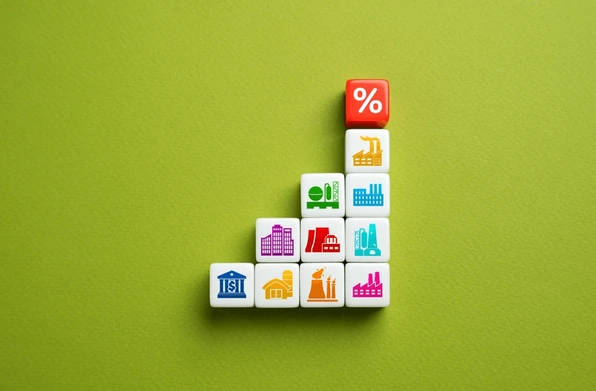Important Information
This website is managed by Ultima Markets’ international entities, and it’s important to emphasise that they are not subject to regulation by the FCA in the UK. Therefore, you must understand that you will not have the FCA’s protection when investing through this website – for example:
- You will not be guaranteed Negative Balance Protection
- You will not be protected by FCA’s leverage restrictions
- You will not have the right to settle disputes via the Financial Ombudsman Service (FOS)
- You will not be protected by Financial Services Compensation Scheme (FSCS)
- Any monies deposited will not be afforded the protection required under the FCA Client Assets Sourcebook. The level of protection for your funds will be determined by the regulations of the relevant local regulator.
Note: Ultima Markets is currently developing a dedicated website for UK clients and expects to onboard UK clients under FCA regulations in 2026.
If you would like to proceed and visit this website, you acknowledge and confirm the following:
- 1.The website is owned by Ultima Markets’ international entities and not by Ultima Markets UK Ltd, which is regulated by the FCA.
- 2.Ultima Markets Limited, or any of the Ultima Markets international entities, are neither based in the UK nor licensed by the FCA.
- 3.You are accessing the website at your own initiative and have not been solicited by Ultima Markets Limited in any way.
- 4.Investing through this website does not grant you the protections provided by the FCA.
- 5.Should you choose to invest through this website or with any of the international Ultima Markets entities, you will be subject to the rules and regulations of the relevant international regulatory authorities, not the FCA.
Ultima Markets wants to make it clear that we are duly licensed and authorised to offer the services and financial derivative products listed on our website. Individuals accessing this website and registering a trading account do so entirely of their own volition and without prior solicitation.
By confirming your decision to proceed with entering the website, you hereby affirm that this decision was solely initiated by you, and no solicitation has been made by any Ultima Markets entity.
I confirm my intention to proceed and enter this website Please direct me to the website operated by Ultima Markets , regulated by the FCA in the United KingdomThe Key Differences of GNP vs GDP
GNP vs GDP is a comparison often discussed in economics. Both measure the size of a country’s economy, but they focus on different things. GDP looks at the value of all the goods and services produced within a country, while GNP looks at the value of what residents of a country produce, no matter where in the world they are. Understanding the difference between these two measures helps you compare countries and understand how much their residents benefit from economic growth.

Clear Definitions of GNP vs GDP
Gross Domestic Product (GDP)
GDP is the total value of all goods and services produced within a country during a certain period. If a country’s GDP is increasing, that usually means the economy is growing, with more people working, more goods being produced, and more investment happening.

Gross National Product (GNP)
GNP is the total value of all goods and services produced by the residents of a country, no matter where they live. So, if a company in your country makes money in another country, that counts in GNP, but not in GDP.
Simple way to remember: GDP is about location (what’s made inside the country), while GNP is about ownership (who owns the production, no matter where it happens).
What’s the Difference?
GNP = GDP + Net Factor Income From Abroad
This just means that GNP adds what residents earn in other countries and subtracts what foreign workers or companies earn within the country.
How GDP and GNP Is Measured
How GDP Is Measured
Economists use two ways to measure GDP. Both methods should give roughly the same number.
Expenditure Approach
GDP = Consumption + Investment + Government Spending + Net Exports (Exports – Imports)
This method simply looks at how much is spent on goods and services in the economy.
Income Approach
GDP = Employee Compensation + Profits + Taxes – Subsidies
This method looks at how much people and companies earn, including wages and profits.
Nominal vs Real GDP
- Nominal GDP is measured using current prices, which can be affected by inflation.
- Real GDP adjusts for inflation to show real growth.
How GNP Is Measured
To calculate GNP, we start with the same factors used in GDP (consumption, investment, government spending, and exports). Then, we add the income that residents earn abroad and subtract the income that non-residents earn within the country.
GNP is closely related to another measure called NNP (Net National Product), which accounts for depreciation (the wear and tear on machines and buildings used in production).

GNP vs GDP: What Counts and What Doesn’t
In this section, we will explore the key differences in what GDP and GNP include and exclude, helping to highlight why these two metrics can produce different results depending on the situation. Understanding these distinctions is essential for grasping how each measure reflects economic activity.
| Situation | Counts in GDP | Counts in GNP |
| A foreign manufacturer produces inside your country | Yes | No |
| A domestic company earns profits from its factory overseas | No | Yes |
| Wages paid to foreign workers inside your country | Yes | No |
| Wages your citizens earn while working abroad | No | Yes |
This helps explain why GNP vs GDP can differ in some situations, like when a country has a lot of foreign businesses or many citizens working abroad.
Practical Scenarios
Multinational Hub Example
Imagine a country with lots of foreign companies, like tech firms or pharmaceutical companies. These businesses produce a lot, so GDP is high. But since most of the profits go back to the foreign companies, GNP may be lower, reflecting that residents are not benefitting as much.
Remittance Economy Example
In countries where many people work abroad and send money home (like the Philippines), GDP might be moderate, but GNP could be much higher because of the income residents earn outside the country.
Global Brand Example
If a company from your country designs products but manufactures them abroad, the profits earned overseas still belong to the country’s residents. In this case, GDP at home may not fully reflect the wealth residents are earning globally, but GNP will.
Choosing When to Use GDP vs GNP
When to Use GDP
Choose GDP when you want to understand:
- The health of the domestic economy
- The local effects of policies or global changes
- Cross-country comparisons of production
When to Use GNP or GNI
Choose GNP or GNI when you want to understand:
- The income of residents no matter where they are working or investing
- Economies with large foreign earnings (like multinational companies or overseas profits)
- The financial impact of remittances or overseas wages on residents
Strengths and Limits
| Strengths | Limits |
| Clear Policy Signals: Provides real-time economic indicators for policymakers. | Not a Welfare Measure: Does not capture inequality, health, education, or environmental factors. |
| International Comparability: Standard across countries for easy comparison. | Informal Economy: May miss shadow economy activities. |
| Resident Income Focus: Shows whether residents benefit from production (e.g., GNP/GNI). | Price & Currency Distortions: Inflation and exchange rate changes can complicate comparisons. |
| External Linkages: Highlights income from abroad, useful for global connections. | Globalisation Impact: Profit shifting can distort GDP or national income. |
A Step-by-Step Decision Framework
- Define Your Question: If you care about domestic output, use GDP. If you care about resident income, use GNP or GNI.
- Check Cross-Border Flows: Look for remittances, profit repatriation, or investment income. If these are large, compare GNP vs GDP side by side.
- Prefer Real Growth Rates: Use inflation-adjusted data for more accurate comparisons.
- Add Supporting Indicators: Combine your metric with data on employment, wages, inflation, and fiscal policy for a complete picture.
Key Takeaway
GDP shows what is produced at home. GNP shows whose income it becomes. Use both together: start with GDP for understanding the domestic pulse, then compare GNP vs GDP to see if residents are benefiting from the gains. This two-step approach provides clearer insight and keeps your analysis SEO-friendly and beginner-friendly.
Disclaimer: This content is provided for informational purposes only and does not constitute, and should not be construed as, financial, investment, or other professional advice. No statement or opinion contained here in should be considered a recommendation by Ultima Markets or the author regarding any specific investment product, strategy, or transaction. Readers are advised not to rely solely on this material when making investment decisions and should seek independent advice where appropriate.












